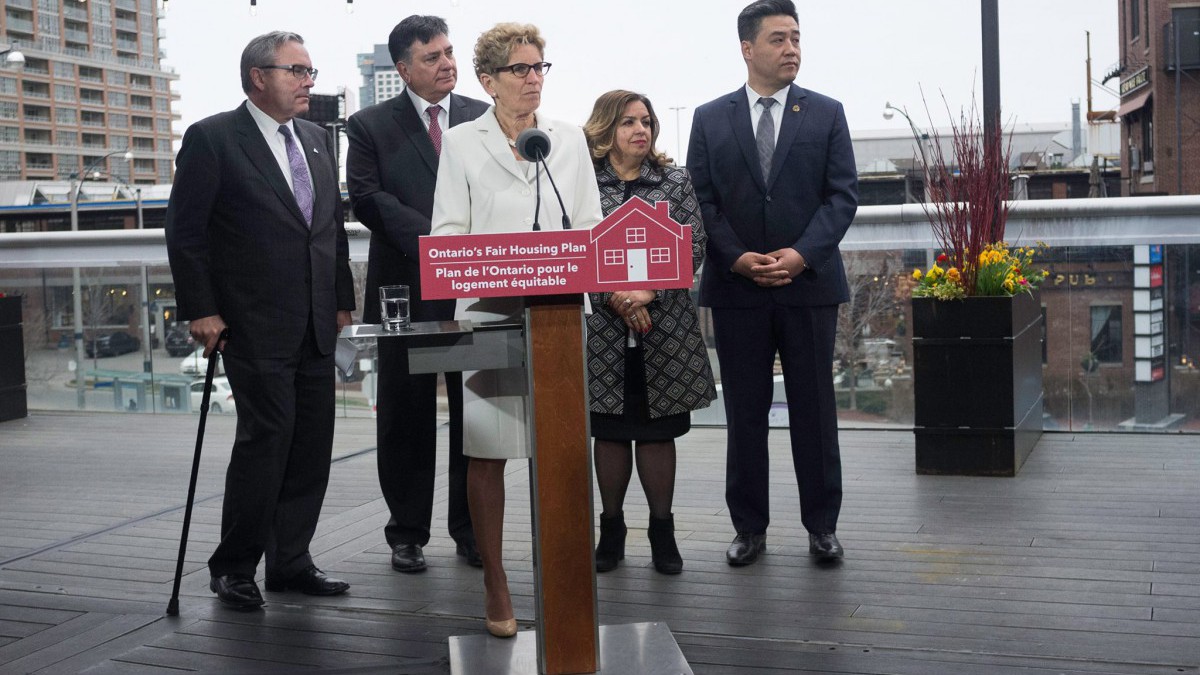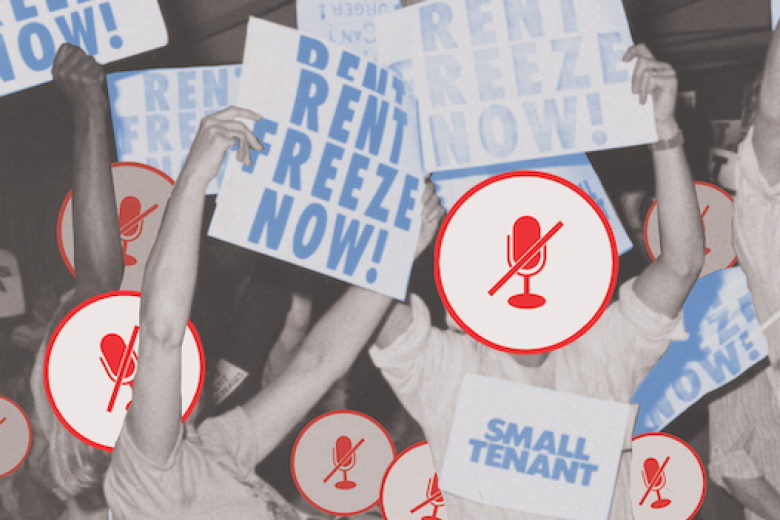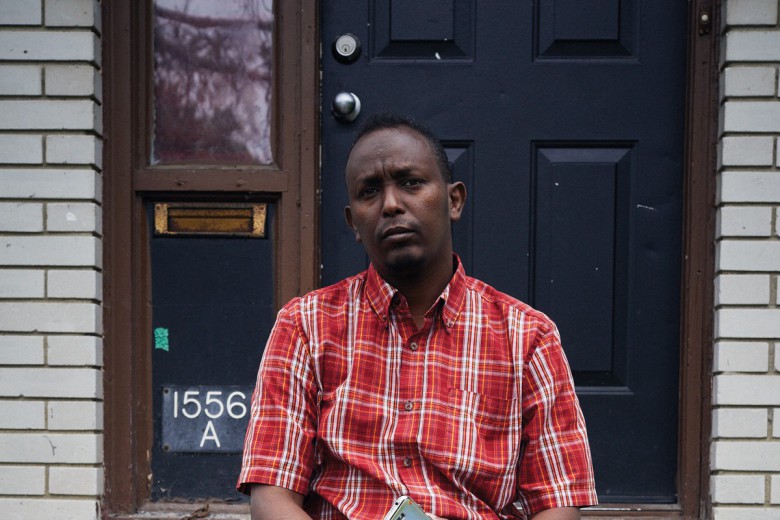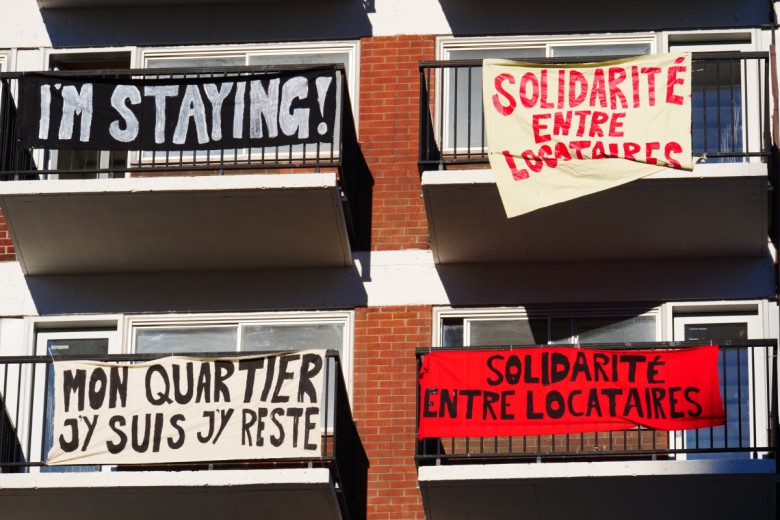What a difference a few months make. Last week, tenants and housing advocates in Ontario won a major victory, securing a series of legal changes that will affect millions of renters. Just three months earlier, the possibility of relief from a brutal housing crisis looked bleaker than ever.
On April 20, a myriad of Ontario housing organizations celebrated a major win when the provincial government announced its Fair Housing Act, implementing rent control for almost all apartments, cracking down on illegal evictions, and getting rid of illegal leases.
Tenant advocates were shocked. How did we get here?
Believe it or not, half of the population of metro Toronto rents. While there are also many more renters province wide, tenant issues have been widely neglected by the media and government, especially in the face of the powerful landlord lobby. Tenants are often written off as a non-voting, powerless lot, paying more than three times the amount of property taxes a homeowner pays while getting little in return.
Tenant advocates are constantly working to organize tenants to push back against illegal landlord activities and highlight injustices to the media and government. One of the main issues on the table was a bill brought in under the Progressive Conservative government of Mike Harris in 1997, which removes rent control restrictions on rental properties built after 1991. The rationale for this exemption was that it would incentivize landlords to build new rental properties. In reality, new units didn’t materialize at the rate required. Tenants have been squeezed for years.
Among the groups that were active in the movement to improve the rental situation is the Toronto-based Federation of Metro Tenants Associations (FMTA), founded 40 years ago to improve tenant protections and provide legal education services for tenants. The Advocacy Centre for Tenants of Ontario (ACTO) and other legal aid clinics around the province defend the interests of thousands of tenants in court every year. The Toronto branch of Association of Community Organizations for Reform Now (ACORN) is a grassroots and member-based organization helping low-to-moderate income people organizing to fight poverty and injustice in their neighbourhoods.
In Toronto alone, other groups like Tenants for Social Housing, RentLogic, Housing Action Now, Generation Squeeze, Social Planning Toronto, the Neighbourhood Change Research Partnership, a host of local anti-poverty organizations, and tenants’ associations have also been part of the fray, pushing hard for specific campaigns, tenant rights, and policy changes.
Tenant groups have long been fighting battles against evictions, homelessness, poor maintenance, and high rents. But since 2007, there have been scant victories.
In April 2016, the government began to toy with a number of landlord-friendly provisions like allowing landlords to ban pets and smoking. It was a low point for tenants in Ontario. Tenant advocates pushed back against the proposals, creating a media firestorm and organizing tenants to contact provincial representatives.
In December 2016, emboldened tenant organizations worked together again to demand that Toronto city council pass a regulatory bylaw forcing landlords to do repairs in their units. It was a close victory that involved door knocking, meetings, contacting politicians, media work, and developing leadership.
In January of this year, Globe and Mail reporters asked the Ontario provincial government about the 30–100 per cent rent hikes that were crushing tenants in Toronto. These tenants were renting in buildings built after 1991, thus exempted from rent control.
The government responded in the same way it had for the last 10 years:
“The post-1991 rent exemption was originally introduced – and has been maintained over time – as an incentive for private landlords to create new rental accommodation in order to meet increasing demand for housing,” Housing Minister Chris Ballard said.
It was looking as if tenants getting massive increases would be left to fend for themselves.
Then in February 2017, something new happened: 32-year-old CBC journalist Shannon Martin reported that her landlord had issued a $1000-per-month rent increase on her unit, effectively evicting her.
Martin’s story instigated a flood of stories in the CBC and other mainstream media about the exploitation of tenants. Thousands of tenants took to social media with their own horror stories of rent increases, abusive landlords, and difficulties finding a place.
ACTO, ACORN, and the FMTA appeared in dozens of media stories decrying the difficult situation that tenants were facing. They spoke at coalition meetings, panels, town halls, and conferences. Front-page stories explained that most renters couldn’t afford to buy in Toronto anymore.
Toronto ACORN began a door-to-door campaign to gain support from thousands of tenants for various forms of rent control: ending the 1991 rent-control exemption, implementing rent control for vacant units, and limiting extra rent increases landlords impose for doing major repairs.
Individual tenants’ associations started calling and writing MPPs, prompting some MPPs to write directly to the Minister of Housing demanding action. Toronto city councillors joined forces to call on the province to change laws.
The landlord lobby pushed back hard with a familiar refrain: if rent is controlled, badly needed rental housing will dry up. The Globe and Mail, Toronto Sun, TVO, Toronto Star, and NOW Toronto all ran editorials and/or columns repeating the landlord-lobby line. There was just one small problem with the reasoning: there had been no rent control on rental units built during the last 25 years, and almost none had been built.
In mid-March, NDP MPP Peter Tabuns moved a private members bill asking to end the exemption of rent control for buildings built after 1991.
The government finally changed its tune, with Premier Kathleen Wynne herself admitting that the idea of stimulating new builds by removing rent-control “does not actually hold water.” The government began saying that changes were coming.
On April 20, 2017, the government announced its Fair Housing Plan, promising standardized contracts, a host of tenant protections, and proposals to curb speculation in the house-buying market. Most importantly, the government brought 150,000 units under rent control and agreed to restrict excessive rent increases.
Landlords are livid. Some pundits speculate that the legislation was a last-ditch effort by an unpopular government to reverse its fortunes. Tenants who had been fighting for these issues for decades are floored.
The reality is that the government’s legislative package is much more than tenant advocates were expecting. It is a major victory for tenants, providing stability and security to thousands. Many tenant advocates can’t believe it happened, having spent so many years watching nothing happen. It’s difficult to be positive about government manoeuvres when so many years have been spent waiting for people to be treated fairly.
The changes announced are substantive and important. They will help millions of tenants in the province.
Still, it’s only the beginning. Tenants will continue to face escalating rents and abuse because vacancy rates are low. The fix – federal programs to build more rental housing – isn’t on the table as it had been in the 70s, 80s, and 90s. It will likely take years before any new housing appears. Landlord profits will continue to soar, while tenants will continue to contend with repairs, illegal evictions, illegal charges, and harassment. Low-income tenants will face particularly crushing conditions as affordable housing disappears from the city of Toronto.
But tenants will keep fighting, knowing that they can win.
The work ahead was best summed up by an exchange between the landlord lobby and a tenant advocate last week when the government announced the changes.
The landlord lobbyist said, “You should be happy, you got everything you wanted.”
The tenant advocate replied, “Not everything.”







